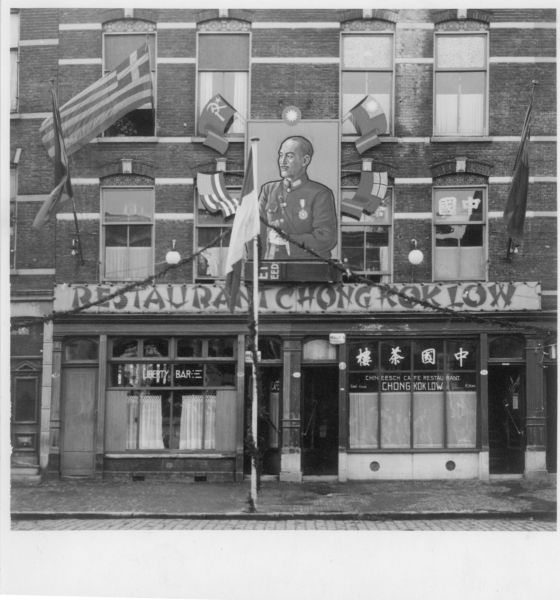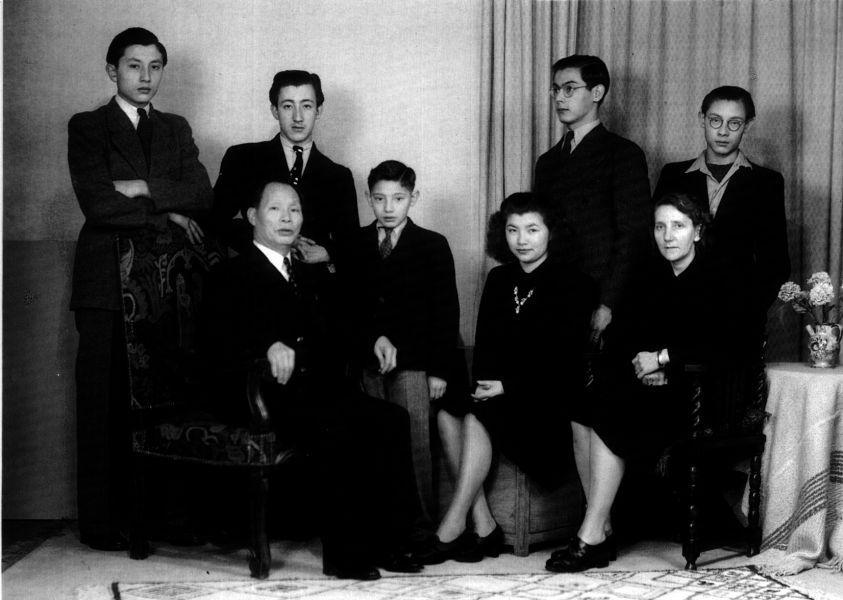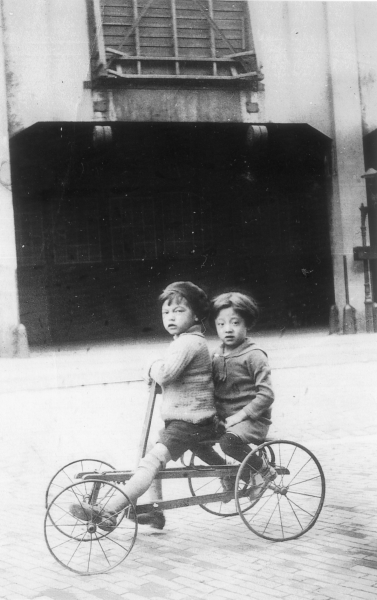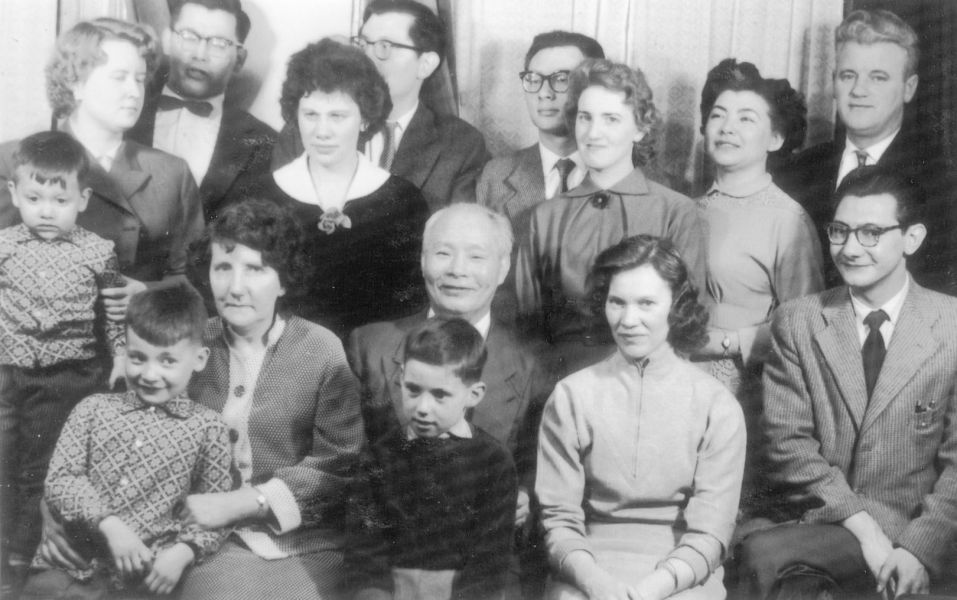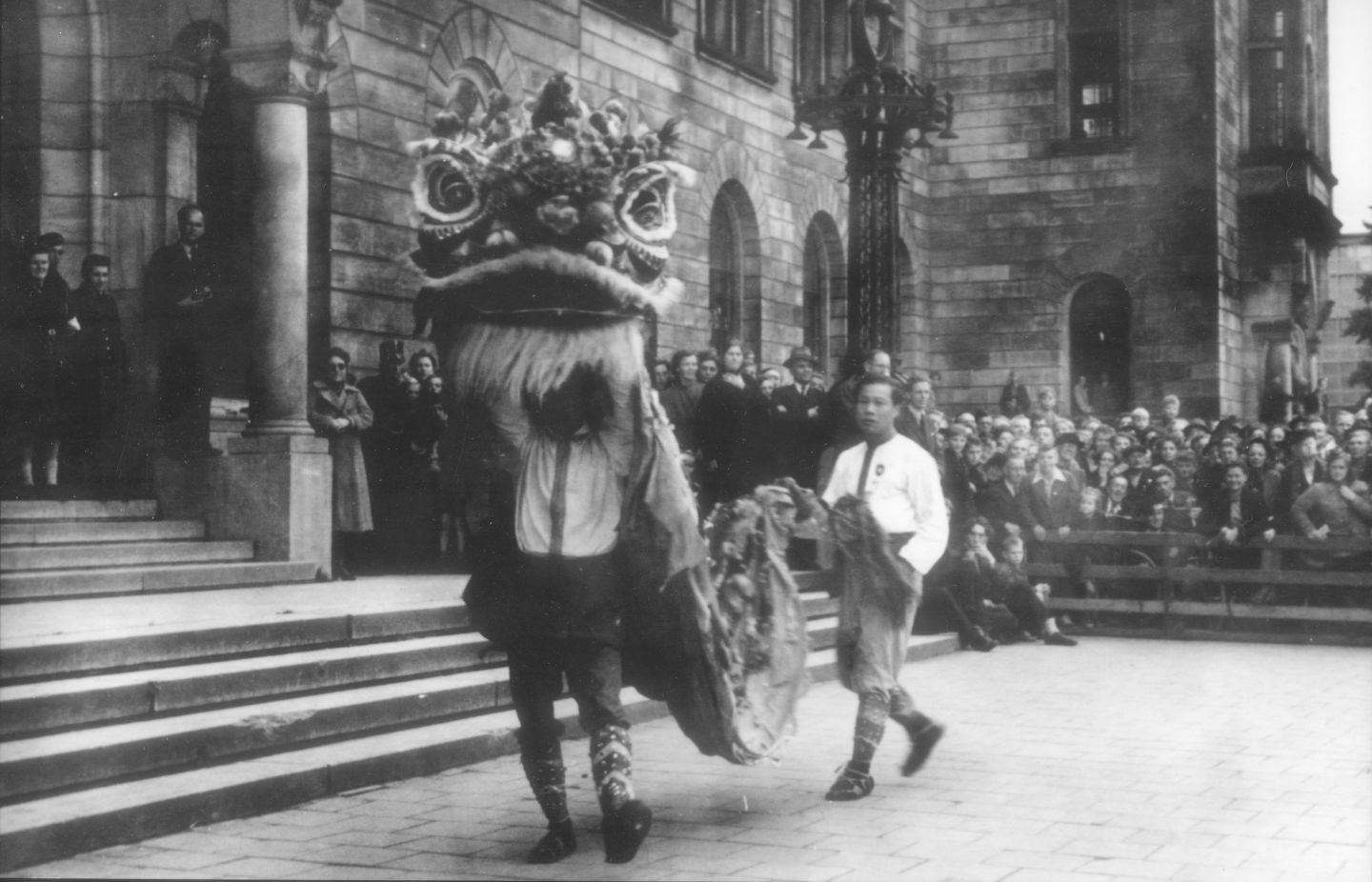
Boekpresentatie David Zee - Chinese Kees
David is de kleinzoon van een van de eerste Chinezen die zich vestigden op Katendrecht. Op 28 december vertelt David meer over zijn boek en zijn familie.
Katendrecht; een plek die snel uitgroeide tot een levendige en kleurrijke Chinatown, waar ook het eerste Chinese restaurant in Nederland opende. Het rijke familiearchief en de herinneringen van David Zee zijn te vinden in het boek.
In gesprek
Aansluitend gaat programmamaker Siuli Ko met David in gesprek. Tevens zal Vera Zhou worden uitgenodigd om deel te nemen aan het gesprek. Vera ontmoette David op een eerdere expositie van zijn archief, en heeft toegang gekregen tot alle beeldmateriaal van David's familie. Momenteel werkt zij aan een eigen boek waarin zij een artistieke visuele herinterpretatie presenteert van de foto's uit David's archief.
Het programma van 28 december
- 15:00 - 16:00 Rondleiding over de tentoonstelling Verankerd?! in het museum, waarin 10 jonge makers hun familieverhaal van migratie over zee vertellen in eigen creaties.
- 16:00 - 18:00 Boekpresentatie David Zee in de Bibliotheek van het museum.
Book “Chinese Kees: mijn vader, mijn grootvader en mijn familie”
History of the famous area that was the first and biggest China Town in Europe and “red light” district in Rotterdam, Katendrecht. During the last part of the 19th century, the Rotterdam port was developed and after the Rijnhaven and Maashaven were dug out a small peninsula was created. In that area not only new blue collar workers had they’re homes there but also a lot of migrants arrived because of the Holland - Amerika line and the Uranium line. Two steamship companies that transferred migrants from all over Europe to the United States.
Not all of the migrants left. Some of them stayed and started bars, hotels and dancings. People from Germany, Norway, Sweden, Greece and other places. The area had bars with exotic names like the Brooklyn bar, Estonia, bar Norge and even the Jamaica inn. The local people lived, worked, partied and even married together with the newcomers. In 1911 Chinese sailor’s arrived in Rotterdam. The national seaman and sailors union organized a national strike for better working conditions and better wages. The strike was broken and not long after this Chinese businessman opened several boardinghouses for Chinese sailors that were now hired by Dutch shipping companies.
The Population of Chinese men grew from a few dozen to over 2000. They started businesses like shops, laundries and the first Chinese restaurant. Also gambling houses and opium dens. After the center of Rotterdam was bombed in 1940 a lot of bars and nightclubs opened in Katendrecht and the area became a renowned area for nightlife entertainment. It became world famous and millions of sailors, seaman and marines from all over the world in the decades after the Second World War. Katendrecht is now and upscale area where people pay a lot of money for house due to gentrification. The neighborhood has changed but the history and the stories remain.
Writer David Zee, 1962 Rotterdam. Is a descendant of a Chinese sailor who came to Katendrecht. David’s grandfather, Che Chai Zee was a first-generation Chinese who settled and married a Dutch woman. He became a successful businessman and raised a family of six children. David was born and raised in Katendrecht. He lived within the Chinese community and brings a unique view of the history of the Chinese and the neighborhood.
Vera Zhou is een eerstegeneratie Chinese migrante, Zij is in contact gekomen met David Zee bij een expositie over zijn familiearchief. David heeft haar toegang gegeven tot zijn familiearchief, en zij werkt aan een visuele herinterpretatie van de foto's en objecten uit zijn archief. Van die nieuwe beelden maakt zij momenteel een eigen boek. Deze wordt eind februari gepubliceerd.
Ze zal tijdens deze dag kort in gesprek gaan met David.
